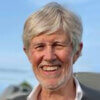There has been a “fluttering in the dovecotes” of academia in New Zealand. The Marsden panels for Humanities and the Social Sciences have been disbanded, and the remaining panels need to show more real-world engagement. Also, applications in these disciplines to the EU Horizons programme will no longer receive the standard research overhead subsidy.
My academic background is in the humanities and the social sciences, so I have a bias. History gave me insights into the bigger picture, sociology provided a specific skillset on society, and statistics produced the precision necessary to tackle analytical issues.
So, what good was this to anybody, other than a tenured position for me at the University of Canterbury? Well, in short order I moved to the Auckland Medical School as a sociologist. It was an eye-opener as to what my discipline mix contributed:
- Between 1870 and 1945, life expectancy in New Zealand doubled from 35 to 70 years. And yet that was before the real advances in modern medicine, since then we have gained about another decade. It was housing, diet, water and sewage infrastructure, and hygiene behaviour generally that made the difference. This is where my history came in.
- Social prescribing (getting patients to non-clinical services), social connection (which for some may be as much benefit as a medication), the placebo effect (a positive outcome without invasive therapy), medicalisation (being aware that we can overmedicalise life events – as in the final years of life), deinstitutionalisation in mental health and disability, hospitals as complex organisations requiring professional management. All these and more drew on my sociological background.
- Evidence-based medicine. I thought medicine was evidence-based, but it transpires that many interventions have not been fully evaluated. This is where statistics came in.
But there was also a more controversial aspect to my role:
- In my early research we found, despite New Zealand’s egalitarian heritage, that socio-economic disparities in death rates were as marked here as in the class-ridden society of the United Kingdom (UK);
- I was associated with research on the epidemic of asthma deaths triggered by fenoterol, a drug promoted in New Zealand by the manufacturer. This was the beginning of my interest in pharmaceuticals policy;
- During the HIV/AIDS period, we conducted a study on sexual attitudes and behaviour using a UK protocol that had been banned by Mrs. Thatcher when put up for funding;
- Being on the Auckland Hospital Board as an elected member of the Cartwright Inquiry prompted me to take an interest in quality assurance and patient harm in hospitals;
- We recorded substantial variation between general practitioners in levels of intervention, including prescribing, after controlling for all relevant factors;
- We estimated nearly a third of hospital costs were due to adverse events, as recorded in our national patient harm study;
- We identified greater levels of patient harm among Māori hospital patients;
- There were much higher caesarean section rates among private patients at Auckland Hospital during my time on its governing board, but that was predictable from research.
So, there is a “mixed picture”: sociology in medicine for relatively uncontroversial insights and tools used in my teaching; sociology of medicine, a look from the outside that can pick up sometimes inconvenient truths that may be unsettling but are still essential for a fuller picture.
What has this all got to do with the Marsden Fund? About twenty years ago I did get a Marsden grant – for modelling social change. That sparked a line of research that continues in the research group I established at the University of Auckland in the Arts Faculty. Otherwise, my work has been funded by an applied line of grants or the Health Research Council (HRC).
Yet, I still hold to the importance of “blue skies” research. The conduct of health services research funded by the HRC now requires a partner in the system, which makes a lot of sense. Even so, before this requirement was introduced, what partners would I have ever found for our national survey on patient harm in public hospitals? It would never have got done.
As it was, the project was not all bad news. New Zealand hospitals had rates of patient harm like Australia’s (about 10 per cent). Few adverse events were due to negligence and were mostly to do with communication and other coordination issues in a complex hospital environment. A fraction of one per cent of admissions resulted in deaths caused by an adverse event. But adverse events were very costly, and we now have a quality and safety commission.
So, the picture on patient harm was “mixed”. But we needed to know.
Sociology can be disliked, not least by authoritarian governments – for example the military junta in Greece banned its teaching in high schools. Let’s not allow that dismissal here. Let us put these disciplines back where they belong in our pantheon of knowledge and its research application.
Peter Davis is Emeritus Professor in Population Health and Social Science at the University of Auckland, where he is also an Honorary Professor in the Department of Statistics. Following Masters in Sociology and in Statistics at the London School of Economics, Peter spent over 20 years as a health sociologist in the Auckland Medical School, before being appointed Professor of Public Health at the Christchurch School of Medicine, and then Professor of the Sociology of Health and Wellbeing in the Faculty of Arts at the University of Auckland where he established the COMPASS Research Centre. He has also been an elected member on the Auckland District Health Board, has a blog, and chairs The Helen Clark Foundation, a non-partisan public policy think tank. Twitter: @PeterByardDavis


